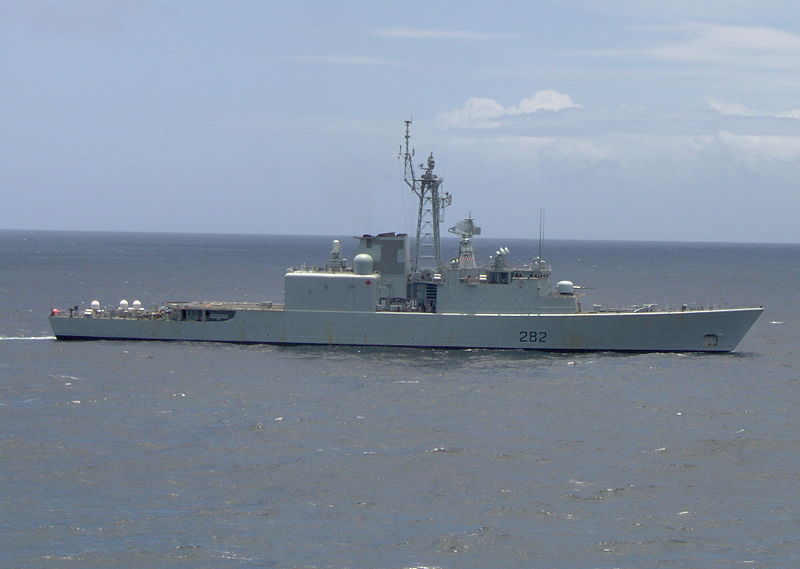It’s worse than you might think:

HMCS Athabaskan
This October, NATO is launching Trident Juncture, its largest and most ambitious military exercise in a decade. The massive land, sea and air exercise will be held in the Mediterranean and will include 36,000 troops from 30 nations. Its goal will be to help the fictitious country of Sorotan, “a non-NATO member torn by internal strife and facing an armed threat from an opportunistic neighbour.” Not surprisingly, this is widely seen as an explicit response to Moscow’s increasingly belligerent pressure on the alliances’ eastern borders. The Canadian government, an outspoken critic of Russian President Vladimir Putin and the invasion of Ukraine, had planned to send its flagship destroyer, HMCS Athabaskan, as “a strong signal to the Russians,” whose ships and aircraft have also been bumping up against Canada’s territorial claims in the Arctic.
But, last week, it was reported by the Ottawa Citizen that the 43-year-old Athabaskan was no longer seaworthy and is being sent back to Halifax for extensive repairs. Athabaskan is a fitting symbol of the overall state of the Navy: Its engines require an overhaul, the hull is cracked, the decks need replacing, and the weapon systems are questionable. Even Rear Admiral John Newton, commander of Maritime Forces Atlantic, describes his flagship as worn and tired.
In February, during a storm off the East Coast, Athabaskan was damaged and a number of engines failed. After that, the Royal Canadian Navy (RCN) decided it was no longer capable of weathering the heavy seas of the North Atlantic, so it was sent south for calmer seas. Nonetheless, its engines broke down in Florida, then again in placid Caribbean waters.
“It was garbage. Everything was always breaking,” says Jason Brown, who served as an electrician and technician on Athabaskan for seven years, ending in 2010. “We did 150 to 300 corrective maintenances a month.” Although Brown praises the ship’s crew, he often spent 20-hour days trying to fix equipment. “The two main engines didn’t like to play nice together. It was 4½ years before that issue got fixed.”
[…]
Compared to its allies, the Canadian Navy is now only one-third the size it should be, given our GDP, and can only play smaller and smaller roles. Stanley Weeks of the U.S. Naval War College, a former U.S. admiral who follows NATO closely, is dismayed at the decline of the RCN. “[Canadian politicians] need more seriousness. Canada is an inherently maritime nation, dependent on overseas markets, especially in Asia Pacific, and, therefore, it has to be a contributing stakeholder, militarily and diplomatically.” He believes American military leaders in the Pentagon have not yet grasped the serious implications of losing the Canadian destroyers. Regardless, “Canadians should worry more about this than Washington.”



